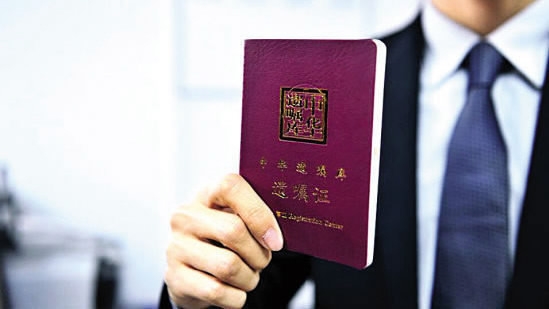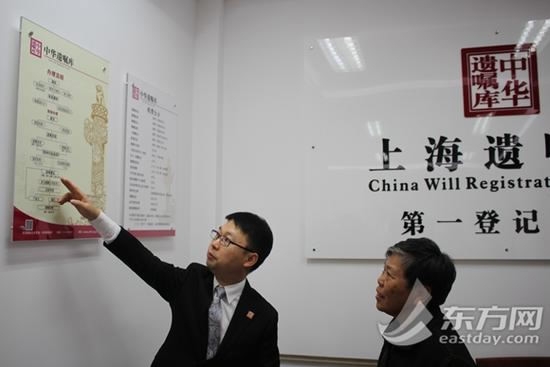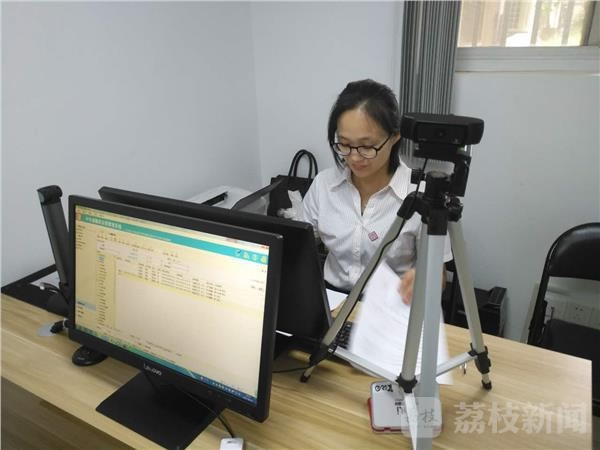
China
12:51, 21-Nov-2017
China Will Registration Center aims to promote younger generaiton to create will
CGTN

Chinese in their 60s are the largest group who are writing their wills, according to the statistics of China Will Registration Center.
The age group is much younger compared with the statistics five years ago, which showed people between 70 to 85 were the most populous group.
The China Will Registration Center is a public welfare project that was launched by China Aging Development Foundation and Beijing Sunny Senior Health Foundation on March 21, 2013. I helps people over 60 with consultation, registration and preservation regarding their wills, although people are allowed to create their will through notary public offices.

A staff introduces health information to an elder in the Shanghai branch of China Will Registration Center. /Eastoday.com Photo
A staff introduces health information to an elder in the Shanghai branch of China Will Registration Center. /Eastoday.com Photo
As of September 2017, more than 72,240 wills have been made and archived at seven branches of the center in China.
Statistics show that people in their 60s, 70s and 80s respectively account for a range from 43.1 percent, 35.7 percent and 19.3 percent of the registration proportion. "The fact that Chinese tend to make wills at a younger age shows they are becoming more and more open-minded," said Chen Kai, chief of the management committee of the China Will Registration Center.

A staff member works at the Jiangsu branch of China Will Registration Center. /Jstv.com Photo
A staff member works at the Jiangsu branch of China Will Registration Center. /Jstv.com Photo
Yang from Guangzhou in south China's Guangdong Province is a 60-year-old lady, who lost her husband. Yang registered her will because she worried there would be too many documents for her only child, to provide to inherit her property.
According to the Law of Succession of China, if people pass away without wills, their spouse, parents and children are all qualified as primary inheritors. Yang's son will need to provide death certificates of his father and a written document from other involved relatives to relinquishing their right to any property. The procedure will be more simplified with Yang’s will registered.
"At first we took the project as an experiment to see whether people will accept it. Surprisingly, it became so popular that sometimes people had to wait for two years to register after making an appointment," according to Chen.

A lecture on laws regarding will-making was held in Shenzhen on Oct. 17, 2017. /Szlnxh.com Photo
A lecture on laws regarding will-making was held in Shenzhen on Oct. 17, 2017. /Szlnxh.com Photo
In China, will-making remains a taboo for many. To make it acceptable, "we tried to interpret the word ‘will’ with the new term ‘love note,' avoiding the ominous-implying expression. At the same time, we promoted the idea with cases in detail which were resonant to people with similar situations," said Chen.

SITEMAP
Copyright © 2018 CGTN. Beijing ICP prepared NO.16065310-3
Copyright © 2018 CGTN. Beijing ICP prepared NO.16065310-3